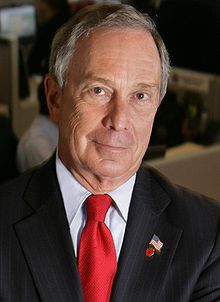

Net worth of $27 billion
The recent GAO study showed that Obama's patent reform is rather misguided. Bloomberg's press apparatus continues to misrepresent it. GAO speaks of "Software Patents", not "Questionable Software Patents" (which can mean a subset of them) and this is something that we see a lot of when it comes to sites that favour software patents. Here is how it's put in this case:
Questionable Software Patents Lead to More Lawsuits: GAO
Software patents are the biggest reason behind a rise in litigation over inventions, especially against companies that use the technology, the U.S. Government Accountability Office found.
The other day, the New York Times published instructions for aspiring inventors on how to take their inventions through the patent granting process and on to the retailers' shelves link here. The examples are a couple of aspiring inventors and describes the pitfalls, the costs, and a rough estimate of the likelihood of success.
Could the simple Latin phrase, per se, which translates as “in itself”, lead to confusion in verifying whether a computer-related invention deserves a patent or not? Some members of the $108 billion Indian information technology industry, intellectual property (IP) law firms and anti-patent lobby groups say it can.
The inclusion of some terms that are not defined by local laws in the government’s draft guidelines on patents for computer-related inventions (CRIs) leaves room for ambiguity and misinterpretation when examiners grant or reject such a patent, they say. The guidelines were released in early August.
The terms include ‘per se’, algorithm, hardware, firmware —and CRI itself.
CRI “has not been defined in any of the Indian statutes and is construed to mean, for the purpose of these guidelines, any invention which involves the use of computers, computer networks or other programmable apparatus and includes such inventions, one or more features of which are realized wholly or partially by means of a computer programme/programmes”, the Indian Patent Office (IPO) acknowledged in the draft guidelines, and called for feedback from industry stakeholders by 8 August.
If you read Techdirt, you're almost certainly familiar with Larry Lessig, the law professor at Harvard who (among many other things) has been an avid advocate for copyright reform and campaign finance reform, an author of many books about copyright and creativity, a well-known public speaker whose presentations are stunningly compelling, entertaining and informative, and the founder of some important organizations including Creative Commons. Of course, as an expert on copyright and creativity, and someone who's actually been involved in some of the key copyright legal fights over the past decade (tragically, on the losing side), you might think that a record label would think twice before issuing a clearly bogus threat to sue him over copyright infringement. Well, apparently Liberation Music was either unaware of Lessig's reputation and knowledge, or just didn't care.